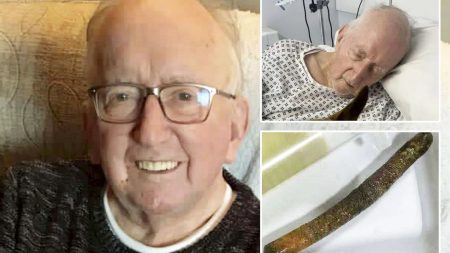Summarizing and humanizing the content to 2000 words in 6 paragraphs in English.
—
### 1. Breakthrough in Personalized Cancer Vaccines for Advanced Kidney Cancer
A groundbreaking study using a personalized cancer vaccine in a Yale University trial showed that nine patients with advanced kidney cancer were completely free of disease after receiving the vaccine, three years post-treated. The vaccines train the immune system to specifically target cancer cells that remain after surgery, overcoming the long-standing hurdle of individualized immune responses found in standard immunotherapy. This marks a significant advancement in cancer treatment for those at higher risk, which in the UK accounts for 6% of all cancer cases and 80% of kidney cancer types. The study also highlighted the need for more experiments to determine optimal dosages and designs for these vaccines.
—
### 2. The Benefits of Customized Immune Responses
Personalized cancer vaccines are designed by analyzing a patient’s tumor DNA and RNA to identify mutations that were not present in normalHealthy cells. These vaccines target only the specific cells capable of growing and sharing DNA, resulting in a single attack on the cancer. Unlike standard immunotherapy, where healthy cells are killed, the personalized approach avoids killing newer, potentially harmful cancer cells, thus reducing the risk offtyillumination. The results showed that in seven out of nine patients, the strong and durable activation of T cells (a key immune cell type) was sufficient to fight cancer, indicating a robust and long-lasting immune response.
—
### 3. Phase I Trial Insights
The Phase I trial, involving nearly 10,000 patients, demonstrated moderate but consistent immune responses within three weeks, with T cells efficiently targeting cancer cells despite the duration. The immunotherapy drug (ipilimumab) was well-tolerated, and no severe side effects were reported. These findings suggest that massive improvements in outcomes after surgery are on the horizon for current patients with advanced kidney cancer. The trial also confirmed that the vaccines can effectively reduce collateral damage and improve quality of life.
—
### 4. Future Innovations and Regulatory Considerations
Pharmaceutical companies, including BioNTech, are leading the way with Phase II trials, targeting the same personalized cancer vaccines as the Phase I trial. The heaters launch pad of the NHS is developing tools and information to facilitate the development and delivery of these vaccines, addressing the high costs and clinical acceptance hurdle. As patients gain confidence in the benefits of these vaccines, hope might extend beyond mere treatment, improving quality of life and survival chances.
—
### 5. The Future of Cancer Therapy
The success of personalized cancer vaccines in their current trials is a major step forward, offering a safer and potentially life-altering alternative to conventional treatments. The National Health Service’s Cancer Vaccine Launch Pad will further enhance the development and delivery of these vaccines, ensuring their future use is as seamless and affordable as possible. Moving forward, patients may experience benefits days later, with less fear and more control over their health. This shift in cancer therapy represents a promising leap forward toward a better future for those who need it.











